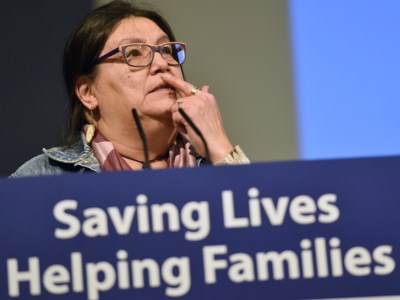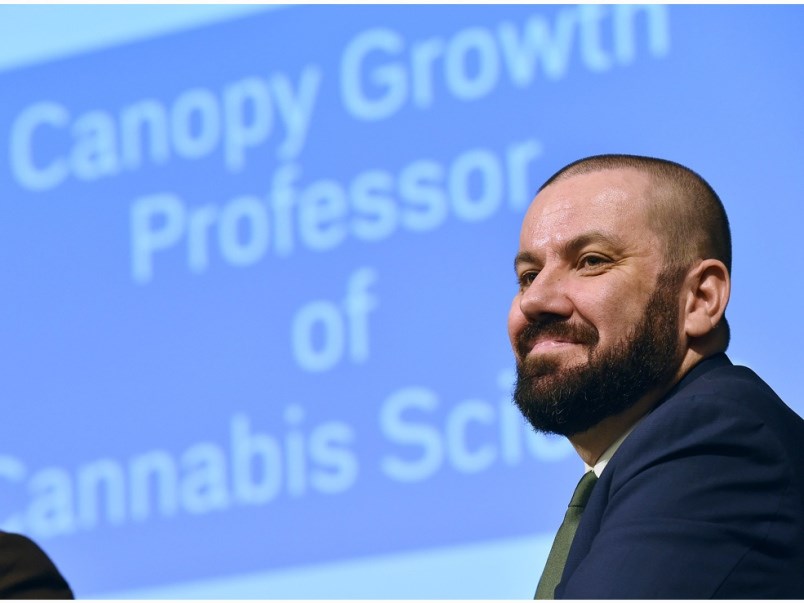Claudette Cardinal refers to her life’s defining moment as “three lost days in Vancouver.”
It was 1995, she was trying to make her way from Edmonton to Victoria and found herself stuck in the Downtown Eastside injecting hard drugs.
She kicked drugs forever after that episode, but the demons continued. Her daughter died of an overdose, she plummeted into alcohol addiction and contracted HIV.
Cardinal would relapse and her weight dropped to perilous lows.
“I was a walking pain monument from head to toe,” she said.
Somewhere around 2009 or 2010, cannabis became Cardinal’s way to cope — spiritually, emotionally and physically. She’s now studying to become a youth drug counsellor.
Back then, Cardinal couldn’t have imagined an announcement like the one that took place Friday in downtown Vancouver.
A newly-created position at the University of B.C. will see a dedicated professor, M-J Milloy, who will oversee clinical trials of cannabis in relation to opioid treatment.
In the first nine months of 2018, an estimated 1,143 people died of a suspected opioid overdose in British Columbia.
Milloy’s position is the first of its kind for B.C.
It’s the revelation of a lifetime for Cardinal, who at her worst, dropped down to 107 pounds as she battled relapsing with alcohol abuse while dealing with the onset of HIV.
“People say cannabis is the gateway. No. For me the gateway drug was alcohol,” Cardinal said.
 Claudette Cardinal has relied on cannabis for years to help with her HIV treatments. (via Dan Toulgoet)
Claudette Cardinal has relied on cannabis for years to help with her HIV treatments. (via Dan Toulgoet)“What we hope to achieve together is to minimize the harm that substance use may cause the Canadian society and to maximize the potential benefits of cannabis as a therapeutic treatment,” said Dr. Mark Ware, chief medical officer with Canopy Growth.
Milloy is a research scientist at the British Columbia Centre on Substance Use (BCCSU). As a substance-use epidemiologist, his research has focused on the inter-relationships between illicit drugs and HIV, a field he’s studied for the better part of the last decade.
Some of the work done in Milloy’s new role will seek to corroborate and further recent studies he’s been a part of. Research Milloy recently conducted showed that among 2,500 hard drug users in the Downtown Eastside, cannabis helped 20 per cent of those people stay with treatment after a six-month period.
Some of Milloy’s research earlier in the decade showed those with HIV had significantly lower levels of the virus in their blood if they used cannabis once a day.
“This was for me as close to an eye opening moment because it suggests cannabis was not simply about symptom management or about recreation,” Milloy said. “Indeed, it was addressing the fundamental disease process for people living with HIV. It opened my eyes.”
Health professionals from across the spectrum spoke to the significance of Friday’s announcement. Study efforts in the past were stymied because of the previously illegal designation associated with cannabis. There was also stigma attached to the plant that prevented people from taking part in clinical trials.
“It’s a highly stigmatized drug… This isn’t suddenly ending overnight,” said Dr. Dermot Kelleher, dean of UBC’s faculty of medicine and vice-president of health. “We continue to face issues around the interpretation and the importance of cannabis research. I think we are at a turning point, but I think we have a long way to go.”
– John Kurucz, Vancouver Courier



